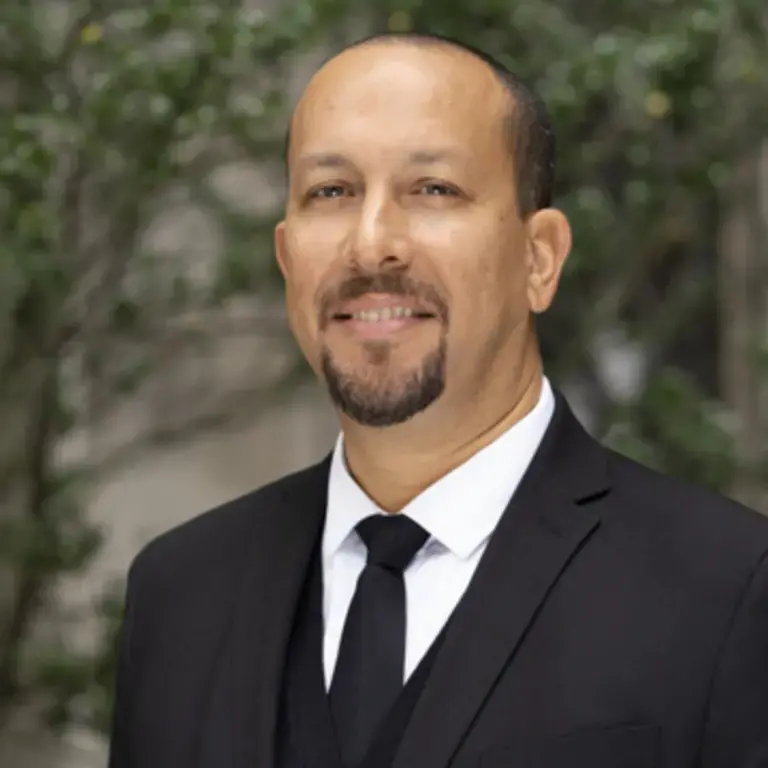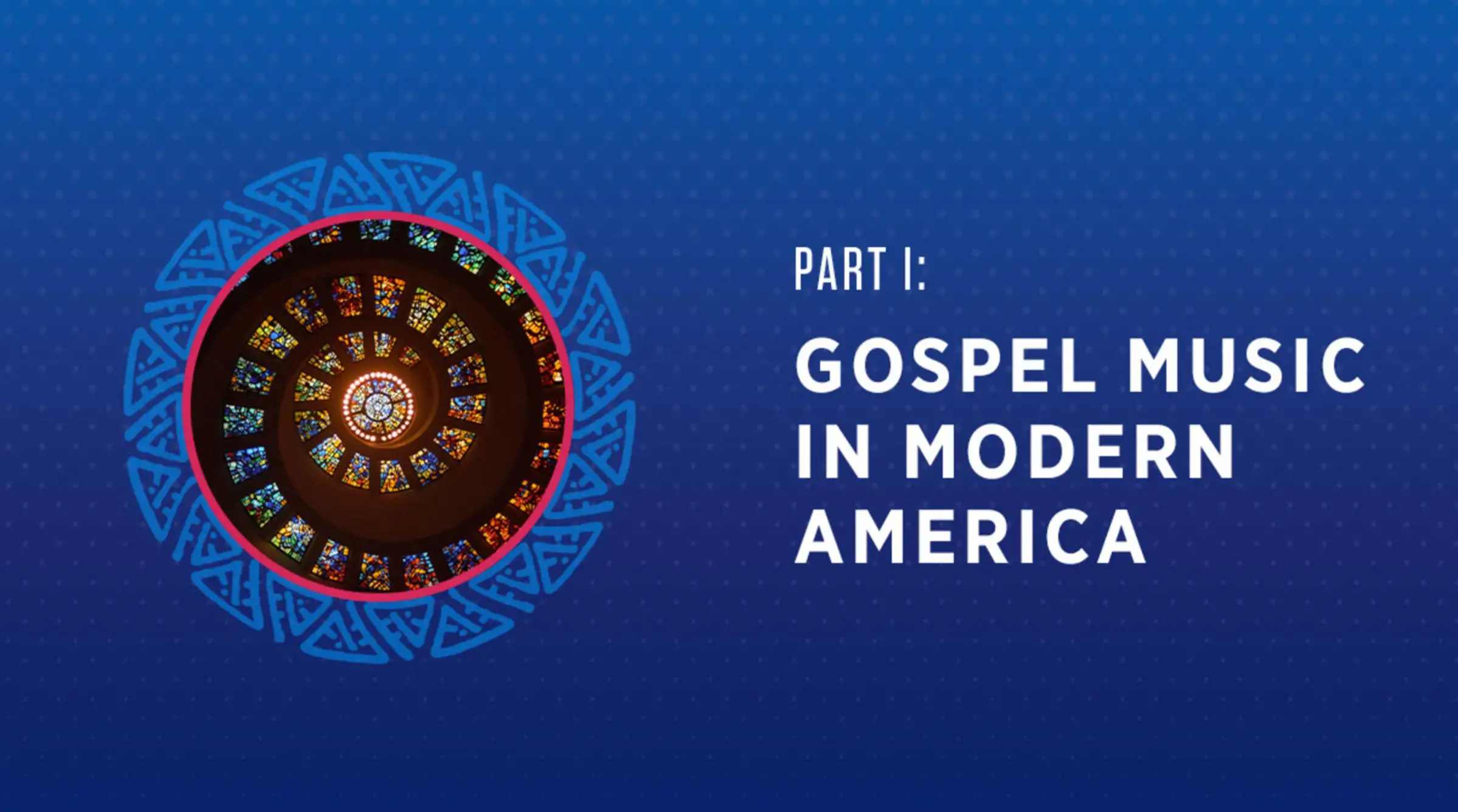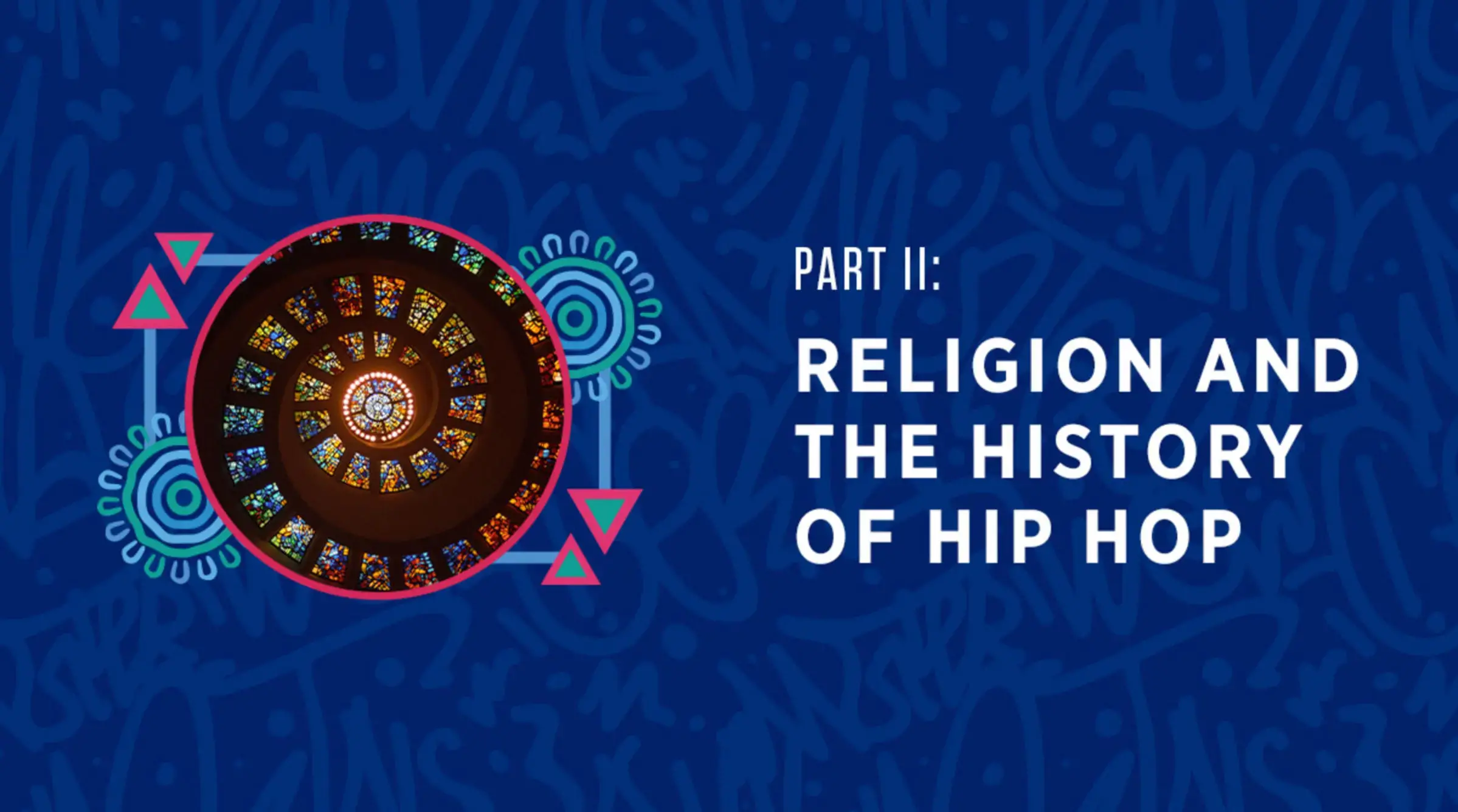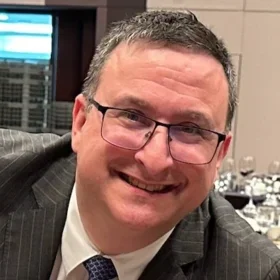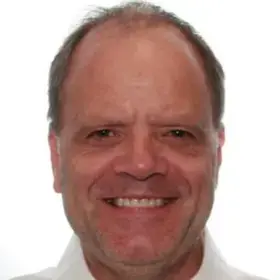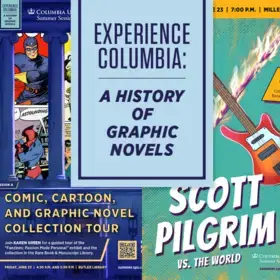In the Summer of 2021, this two-part series took attendees on a tour of the music that reflects the spiritual and social experiences of Black Americans across generations, from the Great Migration through the struggles of the Civil Rights era, up to our current moment of social demonstrations against systemic racism. Led by Chair of Columbia’s Department of Religion and Professor of Religion and African American and African Diaspora Studies Josef Sorett, this program gave attendees the opportunity to hear the music, learn about the experiences and inspiration behind it, discuss its meanings, and be moved through a 100-year survey of the sacred and secular tensions that have animated and inspired Black music.
To fully grasp American culture and politics, one has to engage with the history of Black music, and it is impossible to understand Black music absent a reckoning with the varying religious and spiritual ideas, practices, and sources that pervade the tradition.
Students and members of the Columbia community participated in interactive lecture-listening sessions featuring noted professors of African American studies, creative writing, and ethnomusicology from Columbia Teachers College, Harvard University, The Julliard School, and Dartmouth College. Each event in the live, six-part series centered on a decade in African American history, with Professor Sorett and the guest lecturer curating a playlist of songs representative of the sociohistorical context of the time period, as well as its impact on contemporary music and current affairs.
PART I: GOSPEL MUSIC IN MODERN AMERICA
This half of the series focused on the play between sacred and secular, from the advent of modern Gospel during the Great Migration era, through the rise of Contemporary Gospel Music, up through the early years of the 21st century.
Opening Conversation on Religion and Black Music with Columbia Undergrads
Professor Sorett introduced the series and engaged three Columbia undergraduates, cohosts of a campus radio show. This conversation surveyed the full span of the religion and the history of Black music, from the early years of Gospel music through Hip Hop music during the most recent decade.
Featuring: Colby King, ’22CC, Malachi Jones, ’22CC, Briana Wood, ’22CC
Gospel Blues to Modern Gospel (1930s–1970s)
Featuring Juilliard Professor and Ethnomusicologist Fredara Hadley, this conversation dug deeper into the early history of Gospel music, focusing on the three decades that followed the emergence of the genre in the 1930s.
Featuring: Fredara M. Hadley, Ph.D., Professor of Ethnomusicology, The Juilliard School
Trajectories in Contemporary Gospel (1980s–present)
Professor Sorett covered the years that follow the period typically considered to be the Gospel genre’s “golden age.” Joined by UVA Professor Claudrena Harold, historian and author of When Sunday Comes: Gospel Music in the Soul and Hip Hop Era, they discussed developments in Gospel music from the 1970s to the present.
Featuring: Claudrena Harold, Ph.D., Professor of African American and African Studies and History, Corcoran Department of History, University of Virginia
PART II: RELIGION AND THE HISTORY OF HIP HOP
Religious studies students and hip hop fans alike got the chance to learn about the genre’s origins, evolution, and expansion during the 2022 Columbia University Summer Session. Professor Sorett instructed Religion and the History of Hip Hop, a lecture-style course, which chronicled the history of religion in the United States through a musical lens. Students learned about the distinct religious beliefs and customs that influence and emerge in hip hop music from the 1970s through today.
1970s–1990s: The Message
How did religion appear in hip hop as the genre first emerged, and how did religious, academic, and community leaders react? Harvard Professor Marcyliena Morgan, Ph.D. joined Professor Sorett to challenge the idea that African Americans don’t participate in health care and to acknowledge how hip hop helps to reclaim the community’s leadership on the issue. By pointing to examples such as 2Pac’s “Brenda’s Got a Baby” song released at the height of teenage pregnancies in the U.S., Dr. Morgan argued that hip hop played a significant role in ensuring African Americans’ access to resources and opportunities as well as protection against violence. She explored these ideas in songs by DMX, the Geto Boys, Bone Thugs-N-Harmony, and Nas.
Guest Speaker: Marcyliena Morgan, Ph.D., Ernest E. Monrad Professor of the Social Sciences, Professor of African and African American Studies, and Executive Director of the HipHop Archive and Research Institute, Harvard University
1990s–2010s: Diary of a Sinner
Christopher Emdin, Ph.D., Associate Professor of Science and Education at Teachers College, curated a playlist to spotlight rappers who penned the complex, inner conflict between a person’s belief system and their lifestyle. Through songs such as “Test of My Faith,” “My Life,” and “Blasphemy,” many rappers made spirituality and religious traditions more accessible and, in some ways, more relatable to people less familiar with them.
Guest Speaker: Christopher Emdin, Ph.D., Associate Professor of Science and Education, Teachers College, Columbia University
2010s–present: Chasing Rainbows
Professor Sorett invited poet and Dartmouth English Professor Joshua Bennett, Ph.D. to close the series with an assessment of religion’s place in today’s hip hop. By reviewing songs such as “What We Do” and even “Wait for It” from the musical Hamilton, Dr. Bennett posited that, “The music is not necessarily about collaboratively initiating freedom; it's actually about a kind of individualism that's created by our particular moment. In late capitalism that kind of despair and despondency and what it means to hear the voice of young people in that moment speak loud and clear."
Guest Speaker: Joshua Bennett, Ph.D., Professor of English and Creative Writing, Dartmouth College
